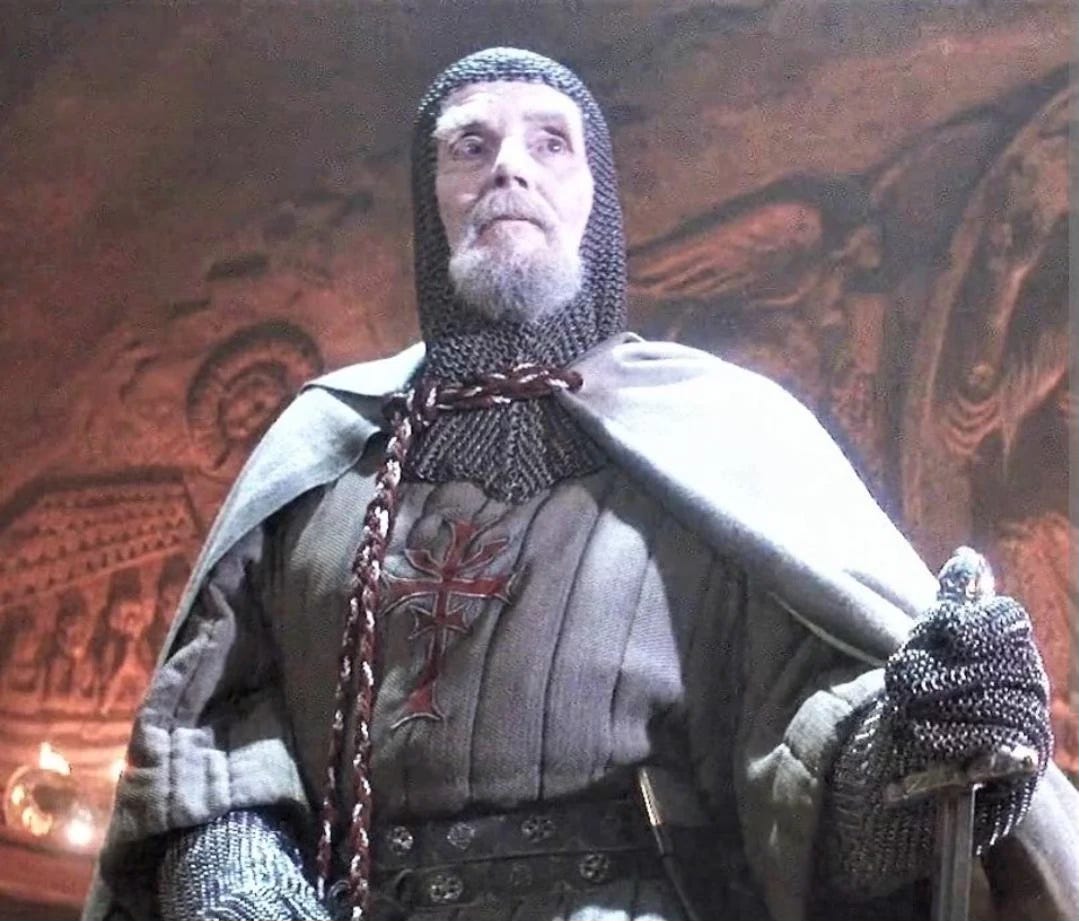In the climactic scene of "Indiana Jones and the Last Crusade," the aged knight guarding the Holy Grail offers a profound and timeless counsel: "You must choose, but choose wisely." Before Indiana Jones stand two distinctly different cups. One is ornate, richly adorned in gold and precious jewels, gleaming enticingly in the dim torchlight. It radiates opulence, its surface smooth and polished, symbolizing wealth, power, and worldly success. Beside it lies another, a simple, humble carpenter’s cup, rough-hewn and plain, without adornment or glamour, easily overlooked and dismissed by those entranced by glittering illusions.
This moment vividly illustrates the deceptive allure of material pleasures and superficial success. Like the ornate chalice, the pleasures found in riches, money, and power often dazzle us with immediate satisfaction, enticing us to chase after fleeting validations and external gratifications. Yet their glitter is short-lived, a mirage that evaporates as swiftly as it forms, leaving behind emptiness and the thirst for something deeper.
On the other hand, the plain cup represents humility, simplicity, and wisdom. It symbolizes the truth hidden in plain sight: that profound contentment and genuine richness are found not through arrogance or pride but through humility and the recognition of our own ignorance—the wisdom of "knowing we don't know." It is this path that ultimately leads to oneness, universal love, and a deep, abiding peace.
Consider this contemporary allegory:
In a bustling city lived a man named Elijah. Elijah thrived amidst the relentless rhythm of modern life, driven by ambition and dreams of success. His eyes were fixed upon towering skyscrapers, his heart captivated by the promises whispered by the city lights. Elijah became skilled at chasing status, tirelessly climbing ladders of power, prestige, and wealth. He wore his success like armor, shielding himself from vulnerability and uncertainty.
One day, amidst the relentless pursuit, Elijah met a humble elderly woman named Miriam, who quietly ran a small community garden tucked away in a forgotten corner of the city. Intrigued, Elijah began visiting the garden, initially drawn by its tranquil beauty. Miriam shared stories of the garden, patiently tending each plant and tree with reverence and care. She spoke softly, yet her words carried the weight of ancient wisdom, reminding Elijah gently, "The deeper riches aren't visible on the surface. They require stillness and humility."
Yet Elijah was impatient. "What value is humility and simplicity in a world driven by ambition and competition?" he thought, dismissing her advice. Instead, he chased after more accolades, expanding his empire of wealth, power, and luxury, his appetite for success insatiable.
Years passed, and Elijah, despite his wealth and fame, felt a persistent emptiness grow inside him. On a rainy afternoon, burdened by a hollow ache he could no longer ignore, he found himself again at the garden gate. Miriam was there, unchanged by time's passage, calmly planting seeds. Elijah, desperate now, asked her, "Why do I have everything yet feel nothing?"
Miriam gently took his hand and placed within it a simple clay cup. "You've sought happiness where it can never permanently reside. Real wealth isn't found in riches, but in the humility to acknowledge that we know very little, allowing life's mysteries to teach us compassion and connection."
In that moment, Elijah understood. His relentless chase had blinded him to life's true beauty, hidden beneath the surface of his ambitions. With humility, he began again, tending the garden with Miriam, nurturing life in simple acts, discovering universal love in the quiet interconnectedness of all beings.
Just as Indiana Jones wisely chose the humble cup, realizing true power lay not in external grandeur but in inner humility, so too must we choose wisely in our lives. For in embracing humility, in recognizing the limitations of our knowledge, we unlock the profound richness of universal love and interconnected oneness—the deepest treasure of all.



